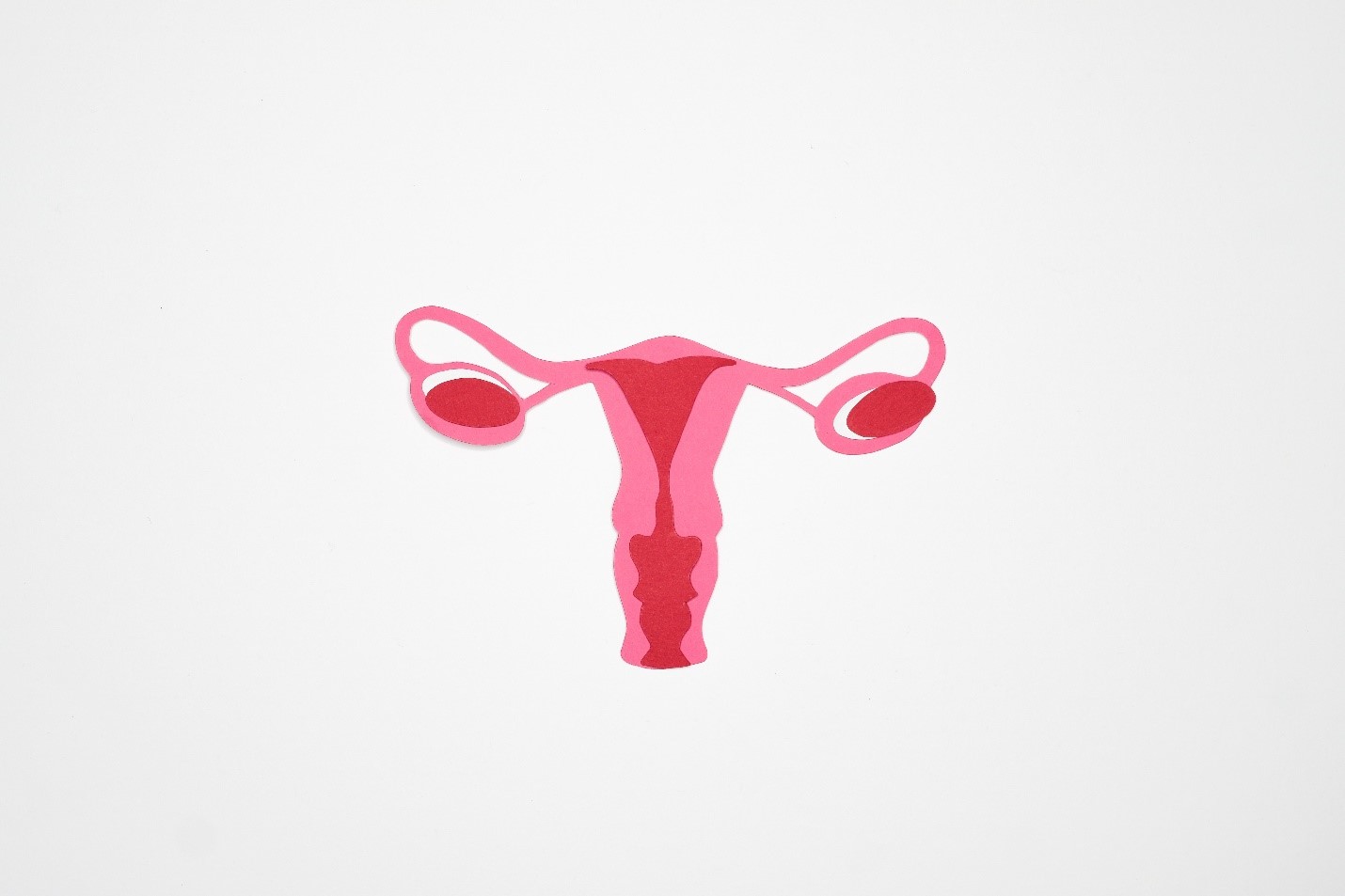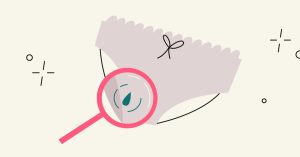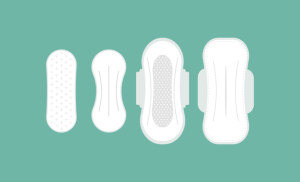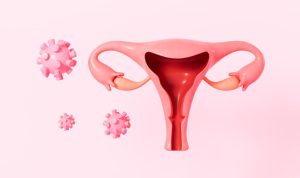Are you ready to explore the positive aspects of menstruation?
Rightfully so, the discussion of a woman’s period is often limited to cramps and being temporarily down for the count. But what about the other benefits?
You may be surprised to learn that menstruation has a very positive impact on a woman’s health and sense of well-being.
Below, we’ll explore why menstruation is so beneficial and how you can leverage it to live your best life.

Overview of the Menstrual Cycle
Did you know that women’s menstrual cycles are more than just a few days each month of bloating, cramps, and mood swings?
Much more, actually.
Your period is a crucial part of maintaining overall health and well-being.
The follicular phase of your menstrual cycle starts with the first day of your period, usually lasting up to 7 days, and then the next phase commences the day after it ends. This phase is marked by a rise in estrogen. This hormone prepares your uterus for potential pregnancy by thickening its inner lining.
This is followed by ovulation where an egg is released from one of your ovaries, ready to be fertilized. This is typically the most fertile time for women and can last 2-3 days in most cases. It’s also when your body produces more progesterone which can have positive psychological effects such as improved sleep quality and high sexual drive.
The last phase of your menstrual cycle—the luteal phase—happens if you don’t get pregnant during ovulation. During this time, progesterone levels drop leading to PMS symptoms such as cramping and emotional sensitivity. As this phase comes to an end your period will commence once again and the cycle would start all over again!
Physical Benefits of Menstruation
Yes, talking about periods can be uncomfortable—but it’s worth being open about the facts of menstruation even if it feels like a taboo. As it turns out, having a menstrual cycle is beneficial to women’s physical health in many ways.
For starters, having regular periods can help regulate your hormones, thanks to the production of progesterone and estrogen. This hormonal balance can help you avoid conditions such as PMS, endometriosis, and irregular menstrual cycles, which are all related to the fluctuation of hormones.
Additionally, menstruation is thought to have an immunostimulatory effect on the body. This means that during your cycle, your body produces more antibodies to fight off any pathogens or bacteria that could cause infections.
So, by regulating your menstrual cycle and taking care of yourself before and during your period, you’re doing your part in supporting a healthier body overall!
Don’t forget to buy Essentials sanitary pads with the widest pad for ultimate comfort.
Mental Benefits of Menstruation
You may not realize it, but menstruation can also have some beneficial mental health effects for women. While for some women, PMS symptoms can be brutal and interfere with their lives, for others, these symptoms appear to decrease with age and are quite manageable.
Additionally, research has suggested that having regular periods may help to protect your mental health in the longer run. This means that if you experience regular periods that come at the same time each month, you may be less likely to suffer from depression and anxiety than those who experience irregular periods.
1. Increased Self-Awareness
Having a period is a reminder of the unique power of being a woman. It can provide an opportunity to take time out of your day and focus on yourself—something many women often overlook in their busy lives. This self-awareness can lead to improved confidence and feelings of well-being.
2. Improved Mood Throughout the Cycle
For those who have a regular cycle, there are subtle changes that occur throughout the month due to hormonal fluctuations. These shifts in hormones can affect things like cortisol levels (a hormone associated with stress), as well as mood-altering hormones like serotonin or dopamine. The pattern of these hormones can help improve your mood over the course of the month, allowing you to feel more balanced and positive overall.
Impact of Menstruation on Reproductive Health
Did you know that your menstrual cycle can have a positive impact on your reproductive health?
It’s true! Menstruation can help protect against pelvic inflammatory disease, endometriosis, and ovarian cysts.
Here’s what you need to know:
Pelvic Inflammatory Disease (PID): This is an infection in the female reproductive organs caused by sexually transmitted infections like chlamydia or gonorrhea. Research has shown that women who are menstruating are less likely to get PID from an STI than those who are not.
Endometriosis: This is a disorder where tissue that usually grows inside the uterus starts to grow outside it. Studies have shown that women who get their period more frequently—like every 21 days—are less likely to suffer from endometriosis than those with longer cycles.
Ovarian cysts: Women who get their period more often are also found to have fewer ovarian cysts than those with irregular menstrual cycles.
So, if you’re wondering about the positive impact of menstruation on your reproductive health, there are some clear benefits! From reduced risk of PID and certain types of cysts to lower risk for endometriosis, having a regular menstrual cycle can reduce your risk for potentially serious reproductive health issues.
How to Manage Your Symptoms During Periods?
You’re probably already familiar with some of the less-than-pleasant side effects that go along with your period. Mood swings, bloating, and cramps can all make life feel especially tough during those days, but there are ways to help manage them.
1. Exercise
Regular exercise can help reduce cramps and symptoms associated with premenstrual syndrome (PMS). That doesn’t mean you have to hit the gym every time—simply go for a walk or even try some gentle stretching at home. This way you can stay on top of any mood swings and physical discomfort, so you feel your best throughout the month.
2. Diet
Maintaining a healthy diet is the key to overall well-being, but it’s especially important when it comes to managing period symptoms. Eating foods rich in nutrients like magnesium and vitamin B6 can help normalize hormone levels which can help reduce any bloating or cramps. Foods like leafy greens and avocados are full of vitamins, minerals, and antioxidants that support hormonal balance while also reducing inflammation and providing energy throughout the day.
3. Sleep schedule
Our bodies naturally crave more rest around our cycles, so if you’re feeling sluggish or just extra tired for a few days each month then it could be because of your period. Be mindful of your sleep cycle—try to stick with consistent sleep patterns like going to bed and waking up at the same time each day—this will ensure that your body gets enough rest so you feel refreshed when your period arrives.
If your sleep is often disturbed during periods due to uncomfortable pad or leakage, use the Essentials extra-long pad for a good night’s sleep!
Ways to Enhance Overall Well-Being During Menstrual Cycles
Your menstrual cycles can be used to your advantage to maintain or improve your overall well-being. Here are a few things you can do:
1. Exercise Regularly
Exercising helps to keep your hormones balanced and reduce premenstrual symptoms like bloating, cramps, and breast tenderness. Plus, regular activity can help with physical and mental fatigue. If you’re feeling particularly sluggish during your cycle, opt for yoga or swimming, as low-impact exercises that will still help with body strength and flexibility.
2. Do Something Creative
Creative activities like drawing, knitting, writing short stories or poems, and painting pottery are great ways to express yourself and provide an emotional outlet. As a bonus, studies have shown that these activities can reduce stress levels.
3. Eat Healthily
Eating a nutritious diet during your menstrual cycle is essential for both physical and mental well-being. Load up on iron-rich foods like green leafy vegetables, lean meats, whole grains, and legumes, as well as healthy fats from fish and nuts which help with energy levels. Staying hydrated is also important – aim for at least 8 glasses of water per day to get you through those premenstrual blues!
Menstruation is not something to be ashamed of, nor a health topic to be overlooked. Research has shed light on the profound effects menstruation can have on a woman’s overall health and well-being. Not only does menstruation provide an important biological and reproductive function but, it also has psychological and physiological benefits.
Having a menstrual cycle can be your regular reminder that you are in charge of your reproductive health and that you have the power to take care of yourself. With the right knowledge, menstruation can be a time of empowerment and improved mental, physical, and sexual health; a time to appreciate the complexities of your body, as well as its healing capabilities.







